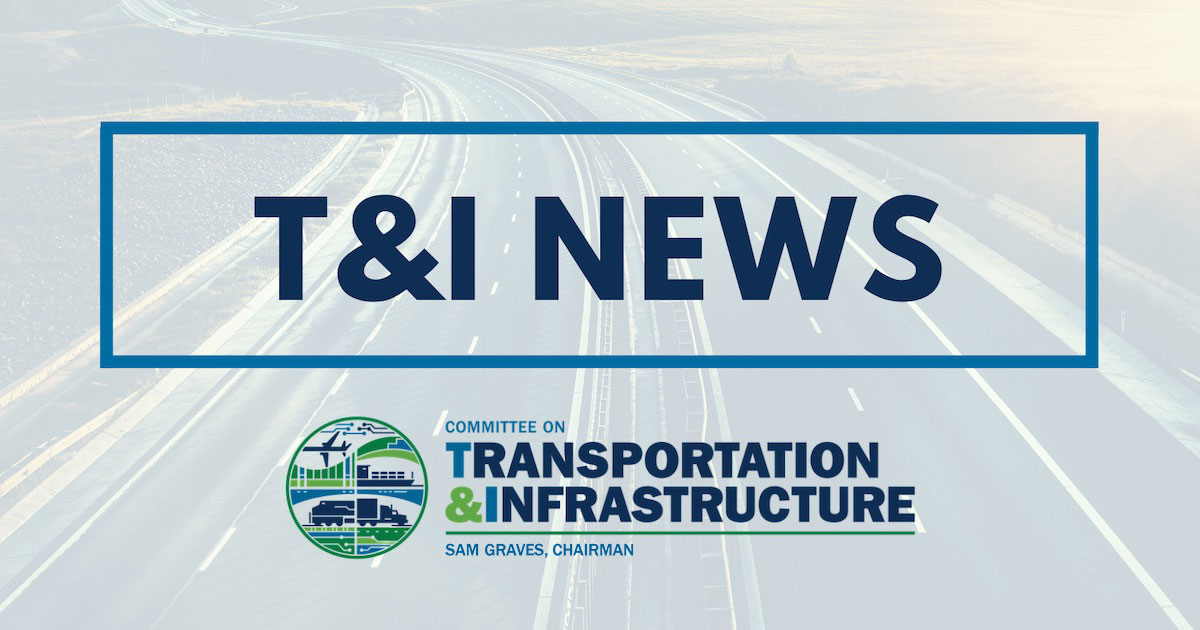Opening remarks, as prepared, of Coast Guard and Maritime Transportation Subcommittee Chairman Daniel Webster (R-FL) from today’s hearing, entitled “Use and Regulation of Autonomous and Experimental Maritime Technologies”:
We meet today to discuss the use of autonomous and experimental maritime technologies by the Coast Guard and industry, and to consider the work that must be done to establish an appropriate regulatory framework for their safe operation.
I’d like to welcome our distinguished witnesses joining us today. We will be hearing testimony from two panels. On our first panel, we have Rear Admiral Wayne Arguin Jr., Assistant Commandant for Prevention Policy; and Rear Admiral Todd Wiemers, Assistant Commandant for Capability.
On our second panel, we will hear from Mr. Sean Pribyl, Committee Member for the National Academy of Sciences report on Leveraging Unmanned Systems for Coast Guard Missions; Mr. Michael Johnson, Chief Executive Officer and Founder of Sea Machines Robotics; Mr. Patrick Lahey, Chief Executive Officer and Co-Founder of Triton Submarines; and Mr. Christian Spain, Vice President of Government Relations for American Maritime Officers.
Autonomous and experimental maritime technologies consist of a wide range of evolving systems that promise to revolutionize many processes while drastically changing the operations of our current marine transportation system. Industry has led the way in developing unmanned and autonomous technologies, which can greatly expand the capabilities of U.S. mariners to perform a variety of missions and tasks both safer and more efficiently.
The Coast Guard is just beginning to leverage some of these technologies, such as the limited use of unmanned systems to expand domain awareness. However, Service-wide integration is still a ways off. Congress, meanwhile, has enacted several legislative measures to ensure the Coast Guard has comprehensive plans to successfully leverage these technologies.
Given the ongoing drug and migrant crises that continue to strain already limited Coast Guard resources, it is crucial that the Service implements these technologies as soon as possible to improve surveillance and intelligence-gathering capabilities and allow manned resources to be more readily available for response and interdiction efforts. Adversaries and criminal networks are already using these technologies to their advantage, such as using unmanned submersibles to move illicit drugs, and we must counter with similar technologies to establish persistent maritime domain awareness.
As the Coast Guard works to integrate these technologies throughout its missions, the commercial sector continues to increase its use of autonomous systems. Industry-led technological innovations have led to the development and testing of autonomous container vessels, the successful trans-Atlantic voyage of the Mayflower Autonomous Ship, and the use of autonomous barges by the commercial space industry for at-sea recovery of rocket boosters.
All of these examples underscore that it is imperative the Coast Guard develop a stable regulatory framework for the safe operation of these technologies. This is no longer in-the-future technology. The technology is here.
As federal statutes currently assume that operators will be physically onboard vessels, we must also ensure our laws meet the changing nature of vessels in our waters. In addition to these autonomous technologies, other experimental technologies, such as Wing-In-Ground Craft and manned submersibles, are also increasing in use, requiring the Coast Guard’s regulation and oversight.
In light of the totally preventable tragedy of the Titan submersible earlier this year, prompt attention to governing evolving maritime technologies is essential to avoid a similar disaster in the future.
I’d like to thank all our witnesses for joining us here today and look forward to a great discussion.
Last week, leaders of the House Transportation and Infrastructure Committee and the Senate Commerce, Science, and Transportation Committee announced a…
Washington, D.C. – Opening remarks, as prepared, of Railroads, Pipelines, and Hazardous Materials Subcommittee Chairman Troy Nehls (R-TX) from today’s…

